- Home›
- Entertainment›
- Silsila To Manmarziyaan, Check Out 5 Bollywood Films On Extramarital Affairs
Silsila To Manmarziyaan, Check Out 5 Bollywood Films On Extramarital Affairs
By: Priyanka Maheshwari Mon, 24 Sept 2018 12:10:53
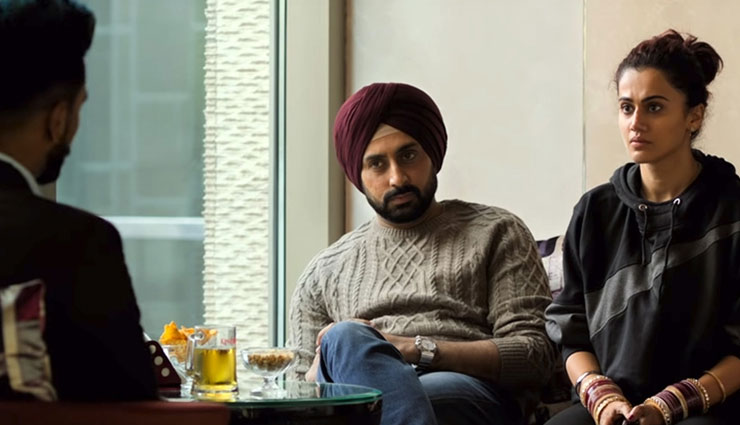
Even as ‘Manmarziyaan’ introduces a bold new term ‘fyaar’ into our lexicon (quick on the heels of Sanju’s euphemism ‘ghapaghap’), it sets me thinking about how Hindi films have come a long way…yet at the same time have stayed right where they were. In Anurag Kashyap’s film, the protagonist (Taapsee Punnu) is a feisty, full-blooded Punjabi girl who has unabashed sex with her boyfriend (Vicky Kaushal in his element) because she enjoys it. Earlier, the hero/ heroine’s indiscretions were attributed to rainy nights, blazing fireplaces and undersized Turkish towels. Believe it or not, in ‘Ek Hi Bhool’, Jeetendra slipped over a bar of soap and fell into a siren’s arms.
But it is what Taapsee’s character does after she is married to Abhishek Bachchan that is more pertinent. I think one of the reasons why ‘Silsila’, described as ‘silly-sila’ by a critic, failed at the box office was because Yash Chopra didn’t have the nerve to show clandestine lovers Amitabh and Rekha (he is married to Jaya; she to Sanjeev Kumar) having a full-blown affair. The truant twosome traipsed amidst tulips, sang anguished songs, and then returned to their spouses wearing an expression akin to errant children. However, in ‘Marmarziyan’, even after marriage, Taapsee finds herself intractably drawn to her commitment-phobic ex-boyfriend and secretly has a passionate sexual rendezvous with him.
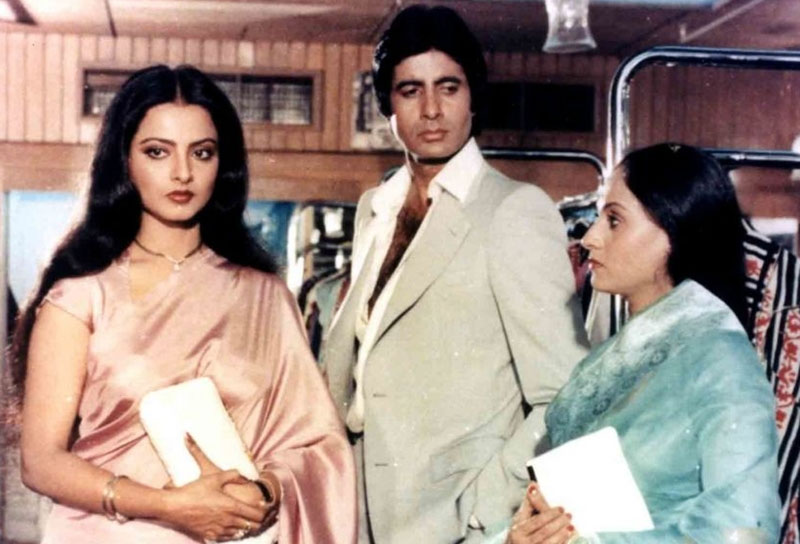
We have moved leaps and bounds from BR Chopra’s ‘Gumrah’ (1963), in which Mala Sinha dutifully marries her sister’s widower, Ashok Kumar, but can’t get herself to totally ignore her first love Sunil Dutt’s persistent overtures. Finally, Sunil realises the futility of the relationship, and oh-so-poetically conveys to Mala, ‘Chalo Ek Baar Phir se ajnabi ban jaayein hum dono’. He reasons, ‘Woh afsana jisse anjaam tak laana na ho mumkin, usse ek khubsoorat modh dekar chhodna achha.’ After Mala’s marriage, her relationship with Sunil is bereft of any physical intimacy.
‘Manmarziyaan’, unlike ‘Gumrah’, doesn’t stop at portraying emotional turmoil. The lovers, Taapsee and Vicky, make it messy by picking up the threads of their affair once Taapsee’s abbreviated honeymoon with her husband is over. There are other novelties in the film’s treatment of this delicate subject but they are skin deep and at best induce an indulgent smile. Five decades ago, in Raj Kapoor’s ‘Sangam’, Vyjayantimala, was serenaded by Rajendra Kumar with a ‘prem patra’; whereas in Manmarziyan, Taapsee meets Vicky on the dating app, Tinder. Also, the bedrock of Taapsee and Abhishek’s relationship is their exchange on social media apps like Facebook. But as the film canters to a predictable denouement, it presents itself as old wine packaged in a new bottle.
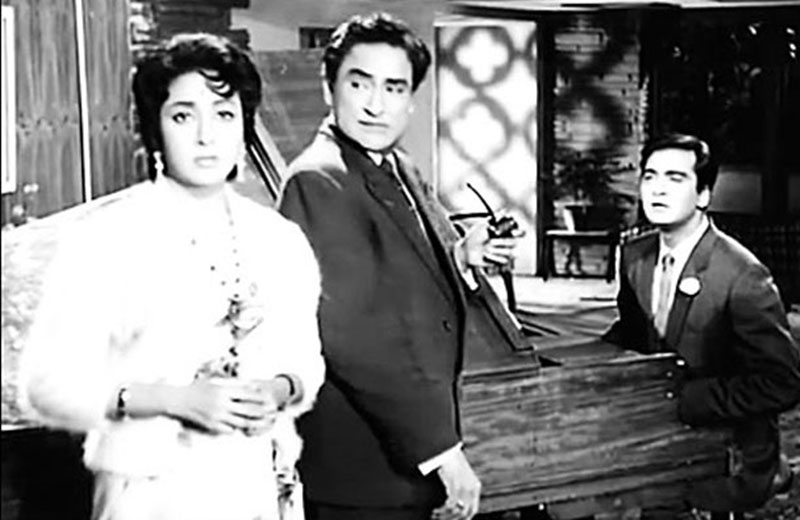
One of the earliest films to show an actual extramarital affair is RK Nayyar’s 1963 black and white film, ‘Yeh Raaste Hai Pyaar Ke’, presumably based on the headlining Nanavati case. A pilot (Sunil Dutt), and his raised-in-France wife, Nina (the exquisite Leela Naidu) have two young kids and a happy marriage. But in the pilot’s absence, his friend seduces Nina. The pilot tries to reconcile with his wife when he discovers her indiscretion but mournfully admits: “Tumhara yeh qasoor hai ki shayad yeh gunaah kiye talk tum mujhe baksh nahee sakti thi … Mera yeh qasoor hai, ki ab main tumhe kabhi maaf nahin kar sakta.”
This inability/ability to forgive or forget is the most explored aspect by filmmakers when it comes to extramarital affairs, whether it is Dastaan, Dhund or ‘Manmarziyaan’. Fortunately, in ‘Manmarziyaan’ none of the three characters commit suicide either (remember Rajendra Kumar shooting himself with a revolver in ‘Sangam’?) though one of the three angles is conveniently dispatched to foreign shores to eliminate his nagging presence.
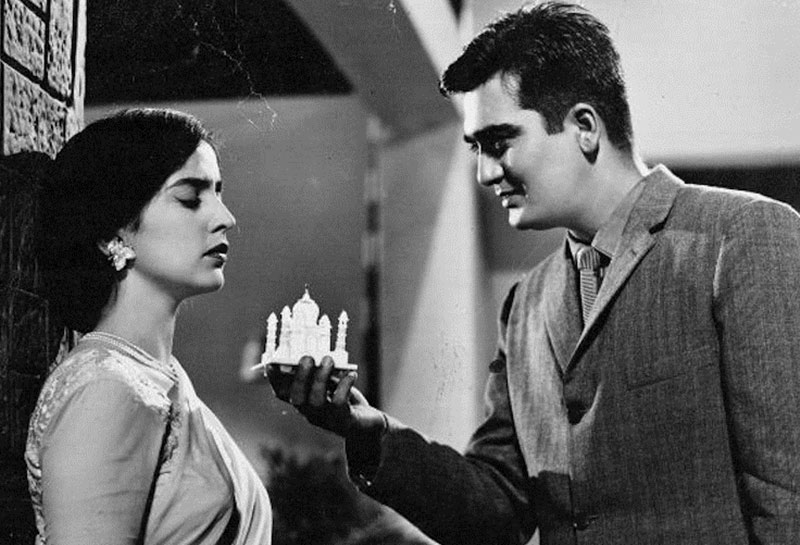
Filmmakers push the envelope creatively while trying to ensure they don’t alienate viewers. In the 1965 classic, Guide, Waheeda Rehman’s Rosie leaves her husband to live-in with the guide (Dev Anand)… but the husband is old and abusive. In 2006, Karan Johar’s ‘Kabhie Alvida Na Kehna’ dared to show Rani Mukerji forsake a husband who is good-looking and a nice guy (Abhishek Bachchan) and embark on an extramarital affair with Shah Rukh just because of their inexplicable chemistry.
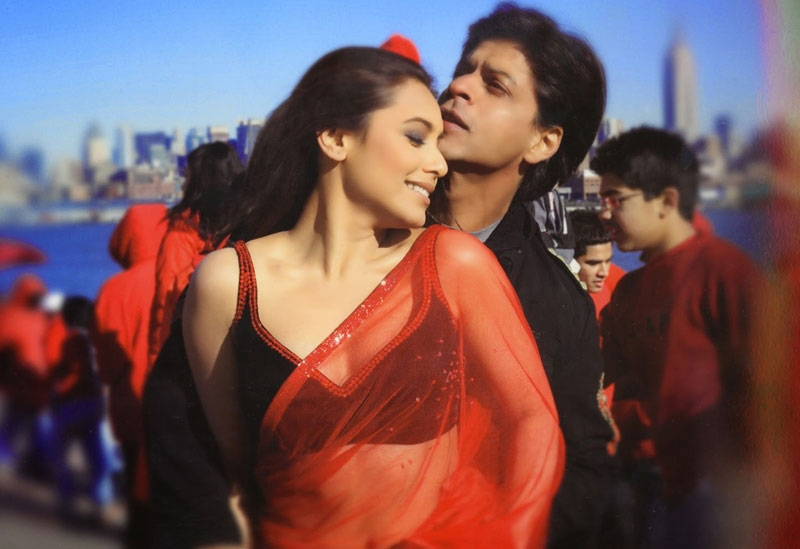
I wonder why some director doesn’t take a cue from Jessica Tandy’s quip, “When he’s late for dinner, I know he’s either having an affair or is lying dead in the street. I always hope it’s the street,” and make an uproarious black comedy on the subject like the Meryl Streep-Goldie Hawn-starrer Death Becomes Her? Or make Arth from Smita Patil (who played the mistress in the film)’s point-of-view, without taking a moral high ground. It would make for fascinating film fare.





